By Anne Heffron
My mother asked for me to read Mary Oliver’s poem When Death Comes at her funeral. I cried when I got to the last stanzas, not because they rang true, but because I felt devastated that, even from the grave, my mother wasn’t telling the truth.
When it’s over, I want to say all my life
I was a bride married to amazement.
I was the bridegroom, taking the world into my arms.When it’s over, I don’t want to wonder
if I have made of my life something particular, and real.I don’t want to find myself sighing and frightened,
or full of argument.I don’t want to end up simply having visited this world.
This is the story I grew up with: after my mother had gone to Smith, she’d gone to New York and had gotten a job as a fact checker for Reader’s Digest. She listened to Kennedy give his “ask not what your country can do for you speech” and was inspired to do something she felt would help the world, and so she joined the Peace Corps and went to Nigeria. Shortly after arriving, she wrote a post card to a friend that described the conditions of Ibadan:
Dear Bobbo: Don’t be furious at getting a postcard. I promise a letter next time. I wanted you to see the incredible and fascinating city we were in. With all the training we had, we really were not prepared for the squalor and absolutely primitive living conditions rampant both in the city and in the bush. We had no idea what “underdeveloped” meant. It really is a revelation and after we got over the initial horrified shock, a very rewarding experience. Everyone except us lives in the streets, cooks in the streets, sells in the streets, and even goes to the bathroom in the streets. Please write. Marge. P.S. We are excessively cut off from the rest of the world.
The next day there was an uprising because my mother had dropped the card instead of getting it into the mailbox, and a Nigerian student had found it. The Nigerians protested the Americans and my young mother almost brought down her beloved President’s cherished organization.
My mother was sent into hiding and then flown home where my father met her at the airport and asked her to marry him. And so supposedly that was her happily ever after moment.
What I learned from my mother’s friend, later, much later, after my mother had died, was that my mother had volunteered for the Peace Corps because my father wasn’t proposing to her and she was desperate to escape the feeling of being rejected. I learned that my mother had felt she’d made a mistake once she got to Nigeria and had only gotten out of that wrong decision because of what she had written to Bobbo.
My mother and my father had grown up in the same town and their parents had been friends. My father was a couple of years older than my mother and they were intellectual matches for each other, both screamingly bright, but put either in a car with a grocery list and something was going to go wrong. What that translates into is that they did wonderfully together when it was the two of them and the New York Times, but put them in a house with kids and endless chores to be done and everything fell apart.
Marrying my father had not been the answer to my mother’s search for self: when I was thirteen she took me out to lunch and told me they were getting a divorce. They ended up staying together, but you don’t forget when your mother lists all the reasons her marriage wasn’t enough for her, and says to find herself she has to break free.
I’m not sure my mother ever did that. I could argue that when she finally dedicated herself to writing the autobiography of Louisa Adams she had found a way to break free and be herself in the blissful hours she spent in her office, writing, and mostly I believe this: only, here’s the thing: Louisa, like my mother, swung between strong and depressed as she went from heroically traveling across Russia on a perilous journey to spending long stretches in bed, more than once near death, for various maladies. Louisa had named her journal “Diary of a Nobody”, and this was who my mother decided to champion, someone who called herself a nobody. Would my mother have been as fascinated by Louisa if Louisa had been as strong in her shoes as say, Adrienne Rich? I doubt it, and this is what troubles me. The woman I am predisposed to mirror has only partially flexed muscles.
Here’s the other thing: my mother died before her book was published. She never knew that Yale Press took her book even though she’d never gotten to the point where John Quincy Adams had been elected President. She never knew that she’d been favorably reviewed on the cover of The New York Times Book Review and in the pages of The New Yorker. She never knew because she waited so long to start.
How was I supposed to know how to live as a woman–what was I moving towards? what was the point of my life?–when my mother so clearly didn’t know for herself? If it wasn’t work and it wasn’t family, because while my mother clearly adored her children, we were also clearly not the center of her universe and were more often a disturbance to her introverted self than a joy, what was it that made a woman feel fully realized?
I wanted to see who my mother would be if she’d valued herself as much as I valued her. What would she have written then? What did a woman sound like when she was being both smart and strong? I wanted to know this on a personal level. Gloria Steinem was a cultural phenomenon, but too glamorous and skinny and photographed for me to imitate in a way that felt real and true. I needed someone closer to home. I needed my mom to bloom so I could follow suit.
For the rest of her life, after returning from Nigeria, my mother lived with the shame of her actions, refusing to give any more than the barest details of what had happened even when I pressed her, again and again, because I was convinced that somehow the key to my mother’s happiness depended on my mother finally telling the story in detail and seeing that it wasn’t something she needed to wallow in self-recrimination about—for if she told the story, the details of who, what, where, why, and when would reduce the postcard incident to what it was: a story. She hadn’t meant to hurt anyone. She was a young woman who hadn’t received sufficient cultural awareness training, perhaps. She was also, let’s be real here, a “Smithie” who might have thought she was better than others because she peed in a toilet and lived in a house instead of a street, but what do you expect when you send middle to upper class white woman to an economically impoverished country? She was uninformed, and, at the time, she was speaking her truth. To carry shame all your life for words spoken or written, can’t be the healthiest environment for your brain, your internal organs, or even the relationships you have. If you carry poison, eventually, logically, you become poison. In her case, you get cancer twice and only survive the first onslaught.
No matter how many times I pressed for details, my mother held her peace Corps story close. The strange thing was that we had some Nigerian artifacts in our house: at Christmas my two favorite ornaments were figures made from corn husk, and there was a carved wooden hanging she kept in her office. For someone who wanted to bury the past, it was strange to me that she kept it where she could see it every day.
When I was in graduate school, I wrote a story where I mentioned the post card incident. One of the older students showed up the next day with a folder of photocopies. “I knew I remembered that,” he said, handing me the papers. My mother had been the subject of a story in Life Magazine—there were pictures of her swinging on a rope and sitting cross-legged in a classroom. There was a copy of the post card. She hadn’t told me that the day after she’d written the post card she and the other volunteers had gone to lunch and had found a photocopy of what she had written at every place.
I couldn’t imagine the horror of feeling so betrayed by words you had committed to paper. To me, writing is so personal, and deeply experimental, and to be held accountable your whole life for something that might have taken five minutes to write seems like a choke collar instead of the serious slap on the hand it could have been. If my mother had written her story and examined both her actions and those of the Peace Corps and the Nigerians she might have not suffered from low-level depression the rest of her life. The writing that had imprisoned her could have set her free.
Our lives are experiments. If we are to be defined by what we set to paper without the opportunity for revision and new understanding or growth, then writing is like carving words into a tombstone.
When you love your mom as much as I loved mine, it’s a terrible thing to watch her carry thoughts of self-hatred. She was so hard on herself. She’d hit herself on the side of the head and say “Dummy” when she did something wrong. I saw her smack her reflection in the mirror more times than I saw her smile at it. It didn’t matter how many times she told me I was pretty; I didn’t feel it in my bones. If she didn’t think she, with her patrician features and pale blue eyes, was attractive, then how could I possibly accept her judgement of me? I just wanted my mom to be happy. More than anything I wanted her to live the life of her dreams, whatever they were.
My mother used to do this thing with her hands when she wasn’t holding something: she would fold her long fingers into pale fists and I would think, How can everything be okay when there is anger at the end of her arms? Time and time again I would take one of her hands in mine and slowly unpeel her fingers. I wanted my mother to open. To flower. To relax into her potential and thrive, but for decades and decades, she didn’t, and neither did I.
The most relaxed I saw her, the most loosely herself, was one afternoon when she was dying and high on morphine. She was playing with her eye pillow, making a rabbit out of it, dancing it in the space between us. Ten minutes before the morphine bunny had come to life, I’d been lying in bed with my mother, curved up against the bony cry of her spine, my hands on her back as I focused on the Reiki symbol for healing. I pretended Jesus was spooned behind me, his hands on my back, his energy running up my arms and into my mother’s pancreas. What was going through my head was the thought that my mother needed to die. She was fighting death the same way she’d fought everything in her life: stubbornly, without thinking about how her actions were affecting others.
I had caught my mother with her lover once when I was thirteen. He was her editor at the local paper, and they were sitting next to each other in the backyard, and he was feeding her grapes. My mother had her gardening gloves on, and her bare legs and feet were dirty.
When I joked with her about having a boyfriend, she got furious with me and the next week said it was my fault he didn’t visit anymore because she’d felt she had to ask him to stay away. I was shocked—I’d been joking. She was married. The mothers I knew didn’t have boyfriends. My parents loved Updike and his tales of infidelity, but we all knew books were something you read, not lived.
Years later, I dropped out of college for her, even though it wasn’t what she wanted. I got to Smith College, her alma mater, and I walked across the campus wondering how I could have this life that she wanted, one filled with smart women and books and ambition and intellect, while she was stuck at home in a life that was out of her control, a life I tried to co-mother with her, much to the annoyance of my brothers, when I was there. I couldn’t imagine how she would survive at home without me to pick up the slack, and so I signed the necessary paperwork and got on my bike in search of the Mass Pike, in search of the way home.
I imagined that she would embrace me and that it would be the two of us against the world until I got married or found some amazing job. I didn’t need college to get educated: I just needed my mom. In high school my mother had told me she and my father were getting divorced, and I’d had fantasies of the two of us leaving my father and my brothers and getting a light-filled apartment with hardwood floors where we could support each other without the noise and chaos of the boys. We could sit in the quiet of our apartment and read and know that there was love between us and no need to fight or set the back yard on fire. But then my parents stayed married, and when I got home from Smith, my mother was distraught. She didn’t want a college drop-out for a daughter. She stayed in her room for three days and called in sick to work. I was completely lost. I couldn’t leave and I couldn’t stay.
It wasn’t until she was in her sixties that she finally retired and committed to writing full time. My mother glowed. She was finally living the life she was born to live, and, amazingly enough, I was also writing—we were both living our dreams as writers. And then she showed up at my brother’s house for Thanksgiving and everyone pointed out the thing that both my mother and father had somehow neglected to see: my mother was yellow.
I called my brother to talk to him about what our mother had written. I told him she had fantasized about moving to England with her lover and leaving us all behind. “Maybe she should have,” my brother said, and, although at first I was taken aback—she was our mother—she and my father had adopted us—didn’t that mean she had a moral obligation, even more than parents who had given birth to their children—to stay? But then I thought about what our life as a family would have been like without our mother, if she had run off to live the life of her dreams. We could have had sugar cereal more often. There wouldn’t have been such a dark cloud of anxiety over everything. We all might have laughed more. The house would have been messier, more fun, because there wouldn’t have been anyone left we had to try to keep happy aside from ourselves. We could have lived like the slobs that we were because there was no one there with whom we had to pretend to be anyone other than who we were.
“Yeah,” I said to my brother. “You’re right.” It would have been so much better, so much more enriching to my sense of the possible, if my mother had gone rogue and claimed her joy instead of angrily being on hands and knees scrubbing the kitchen floor that was too old to ever look clean.
That’s not to say she didn’t think highly of herself. I’d be willing to bet she thought she was the smartest one in the family. There was a time when she was dying that she took my father’s face in her hands and said, “My stupid boy.” I watched because I’d never heard her openly admit her thoughts, and he carefully took her bony hands from his face and said, “Please don’t call me that.” She nodded and closed her eyes as if nothing had happened, but she’d said it, and it was official: she’d confirmed what I’d suspected all my life: she thought she was better than her husband.
She knew she was smart and accomplished, and was even a bit of a braggart about graduating summa cum laude from Smith and earning nothing but A’s in school, but it was a vanity based on insecurity, so it was hard to know what was real. Was she a strong woman or was she weak? Was she a role model or a warning? She didn’t look straight in the mirror when applying her makeup, so her lipstick would not follow the lines of her lips accurately and her mascara and eye shadow, when she wore them, were smudged even before she left the bathroom. She swung between the two extremes of confident and depressed, commuting to Boston to write speeches for a congressman and then staying in bed for days in a row because she’d worn herself down to a pale, teary sadness.
My mother lived within the balloon of false ego, and so it was dangerous for me to feel I was outshining her (aside from athletics which she held little stock in since, I believe, she, with her gangly body and busy brain, was not created to love sports). She would tell me I was so pretty and then make a disparaging remark about herself and I would die inside. My strengths hurt her. I didn’t want to be strong as much as I wanted her to love herself, and so, in many ways, I kept myself small. The trick was to do well, but not so well as to make her feel bad about herself. When I was eighteen, I drove up to the house in my new car, and my mother turned to my father and said, “Why does she have cloth seats and I get plastic?” My father shrugged and I apologized. She told me it was a nice car and turned and went into the house. Two years later it would get repossessed when I wasn’t able to keep up with the payments, so she won in the end anyway, I guess.
While I was growing up, our family existed in many ways so my mother could shine. She got to say she was the primary caregiver and the primary breadwinner, that no one else could do what she did, none of us could manage the complexities of her life as a mother, a wife, a valued employee, an informed member of the political community, as a friend. Our small and large failures, perhaps, bolstered her and gave her the opportunity to feel strong.
Again and again I was told by teachers and coaches and employers and parents of friends I wasn’t meeting my potential, and this didn’t change until, in her sixties, my mother started writing her book. Then, by some wild coincidence I was matched up with a writing partner and wrote a movie that won, among other awards, best screenplay at The New York International Film Festival.
But by that time, though, my mother was dead.
“I need you to teach me some leg strengthening exercises,” my mother had said to me a few weeks before she died. “I can’t keep calling your father up here every time I need to go to the bathroom.” I followed the lines of tiny flowers up and down her nightgown with my finger and thought about getting her out of bed, holding her up so she could pretend to be stronger than she really was.
“It’s not about getting stronger now,” I finally said. “You’re dying, Mom, and you’re so busy fighting it you’re missing the whole experience.” I felt her stiffen under my hands. I had never been so nakedly honest with her before in my life, but I was angry and heartbroken and done with the dance we’d been doing all our life. She was leaving me, so she might as well get it over with and go.
When you are adopted, it’s easy to assume your parents got you to make their lives better. You can get pregnant by mistake, but it’s much harder to adopt by mistake. There’s a lot more paperwork to sign, money to hand over, inspections by social workers to bear. I had come into my mother’s life to make it better, and I had failed. She was still going to die. I patted her shoulder and got out of bed. “I love you, Mom. I have to go run some errands. I’ll be back soon.” I should have kissed her but I just walked out the door, knowing there was a slim chance she’d die in the gap of time I was going out, and for the rest of my life I’d have to live with the guilt of this final betrayal. But she didn’t die. She didn’t die for weeks. She held on, fighting for her right to take up space on this planet.
After my mother died, and after I finally wrote a book that told the story of my life, my mother’s friend sent me the journals my mother had given to her for safe keeping. My mother’s friend told me she was sending me the journals because she wanted me to know what had happened, and she wanted to show me that I’d done what my mother hadn’t had the courage to do, and she wanted me to know that she was proud of me for having the courage to tell the story of my life when my mother had been too afraid to live her own, never mind write about it.
I read the three thin journals from the late 1970’s, early 1980’s, and I learned that she’d not only had boyfriend, but her affair had gone on for three years, even after he’d gotten married. She’d lived a false life right in front of me and scolded me when I’d only said what was true. I also saw was that all the work I had done: all the meals I had cooked, all the times I had vacuumed, dusted, told my brothers to be quiet so our mother wouldn’t get upset, (all the wife things I had done as a child and as a teenager), hadn’t made a difference. Or at least they weren’t notable enough to merit mention, for the one line I rated in her journals was “ACH unpacked the groceries but left the bags on the floor”. What she filled the journals with were her longings for her lover and her need to escape her marriage, and, by proxy, us, her children.
The most disquieting thing, strangely, was that she wrote about herself in the third person, calling herself either “she” or “MH”, and, for a woman who had made a living as a writer and an editor, she did a terrible job narrating her life in an interesting fashion. She spent a great deal of time rewriting sections, as this was before computers and cut and paste, and she would often rewrite notes to her lover three or four times, changing just a word or two, never saying much that didn’t sound like she was groveling or apologetic for having needs. I was shocked as I read her journals and, worse, I was bored. My mother was boring in her desire for escape from her suburban life. She was boing because she didn’t do anything dramatic. She stayed because she couldn’t figure out a way to make the split work financially. She stayed because the truth was it wasn’t a lover she wanted, it was the life of a writer and she was too afraid to even articulate that and so she went nowhere and, when she died, the look on her face was terrible. She looked as if she’d fought leaving the room until the very door shut and all the light was gone.
For a week, I drove around with her journals in the truck on my car. I didn’t want to look at them, but I wanted them close. She’d let me cook the meals, dust, vacuum, try to keep my father and brothers in line while she was sometimes driving around Newton, hoping for a sighting of her love in the window of his house, the house he shared with his betrothed.
I carried the bag of ashes at my mother’s funeral, and before I was to hand them over to the minister so she could pour them into the hole in the ground to mix with the other churchgoers who had chosen to be burned rather than buried, my aunt came to me and asked for a handful of the ashes so she could scatter them in her garden. She handed me a baggie, and, not having a spoon, I opened the bag and grabbed a handful of ash and poured it into the baggie. I wiped my ashy hands on my black coat only to see smeared handprints. I slapped at my jacket to dust myself off, and soon the prints were gone.
I wish I had taken a pinch of the ashes and eaten them. I wish there was a way for me to physically carry my mother, with whom I share no DNA, no blood, around forever. I love her very much and I miss her every day, still.
But I didn’t write my book about being adopted, wasn’t able to tell my truth, until she was dead. It was such a high price for freedom.
This was how my mother’s journal ended:
Important to discuss with Dr. T: why did she say X [my mother’s lover] is an illusion?
What was it about vacation that was bad? Why was I so angry – interesting – can’t remember. Woke up crying.
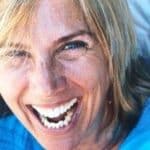
Anne Heffron teaches writing workshops and works part-time as a massage therapist. She co-wrote the movie Phantom Halo with Antonia Bogdanovich and recently wrote the memoir You Don’t Look Adopted. She is currently working on a book about writing and mothers. She blogs almost daily at anneheffron.com as she tries to figure out what it means to be adopted.
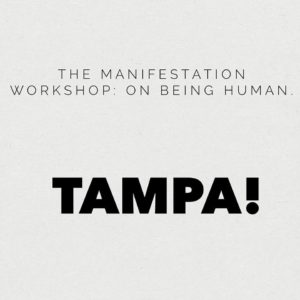
What’s Jen Pastiloff’s workshop all about anyway? It’s about being human. Connecting. Finding your voice. Not being an asshole. Singing out loud. Sharing your fears. Bearing witness. Telling your fears to fuck off & fly. Listening. Moving your body. Laughing. Crying. Finding comfort. Offering comfort. Letting go. Creating.
Next one after this is NYC Feb 4 at Pure Yoga West. You don’t need to be a yogi at all. Just be a human. Click photo to book.

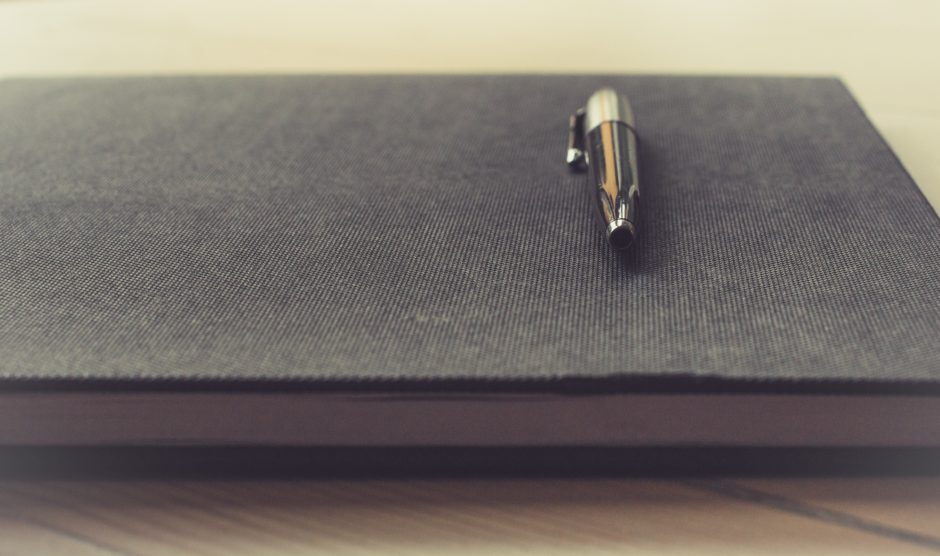
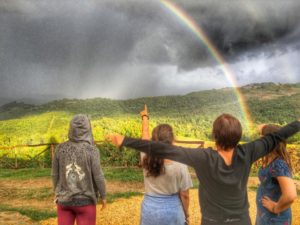

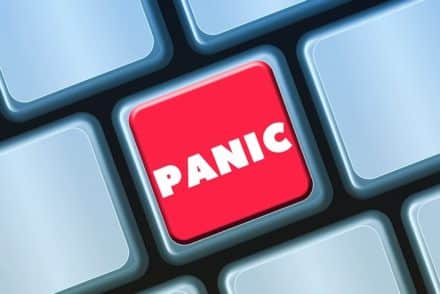
1 Comment
Breathtaking piece. It will stay with me for a long time. Brava, Anne Heffron.